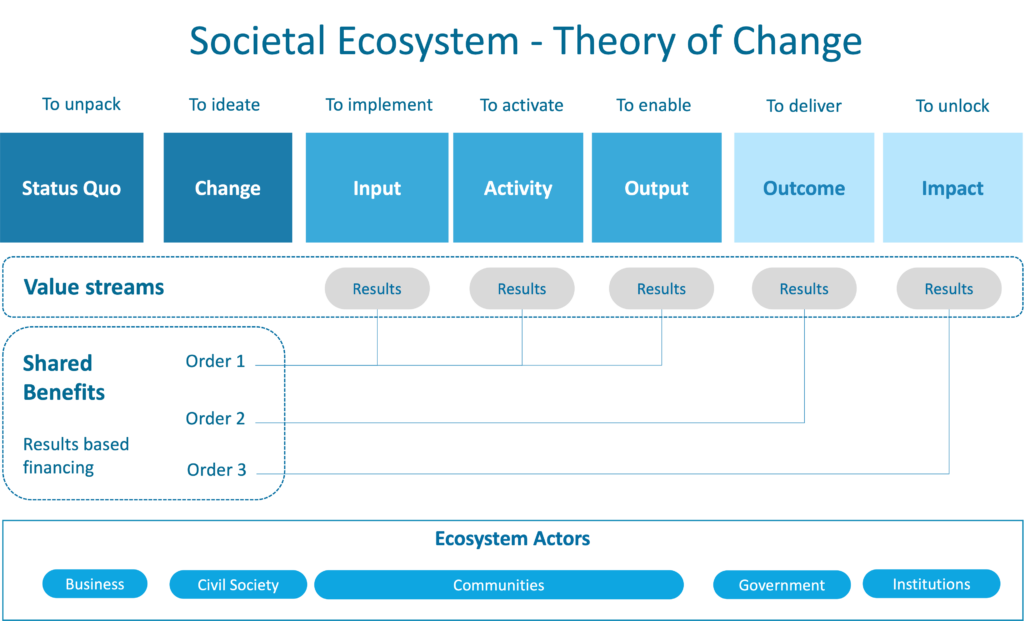Our Impact Engine Canvas
The Impact Engine Canvas is a structured framework designed to scale positive impact. This visual tool guides the design process, encompassing the essential components needed for achieving Impact@Scale.

Mainstreaming Theory of Change (ToC)
Our approach centers on creating enduring benefits within a societal ecosystem guided by the Theory of Change. Activities within each value stream build upon each other to produce outputs (first-order), outcomes (second-order), and, ultimately, large-scale societal, ecological, and economic benefits (third-order) that serve the public, private sectors, and civil society.
Sustainable Values Streams for societal benefits
Impact Engineering is rooted in sustainable value streams that drive meaningful, long-term societal benefits. By structuring initiatives around these streams, we facilitate progress through measurable outputs and outcomes, supporting societal and ecological well-being
Ecosystem Shared Benefits for a scalable ROI
Shared benefits, both financial and non-financial, amplify the Theory of Change by accelerating scalable impact. Identifying and distributing these benefits enables all ecosystem participants to enhance their engagement, maximizing return on investment and fostering broad participation in the impact framework.
Unpacking the Status Quo
Addressing inaction is crucial. The cost of maintaining existing systems can often outweigh the investment in innovative, change-driven strategies, particularly where long-term consequences accumulate. By confronting the status quo, we open pathways for impactful, sustainable solutions.
Opportunity Cost to Drive Change
Opportunity cost—foregone benefits from maintaining the status quo—is a vital measure in impact engineering. When the potential impact of a new approach significantly outweighs the current model, ecosystem actors are motivated to embrace the new Theory of Change, fostering momentum for scalable impact.
Impact Tech for results based financing
Impact technology bridges finance with measurable results, grounding financial strategies in verified outcomes. Key functions include tracking, validating, and distributing benefits across the ecosystem, ensuring that impact aligns with the Theory of Change and supports sustainable growth.
